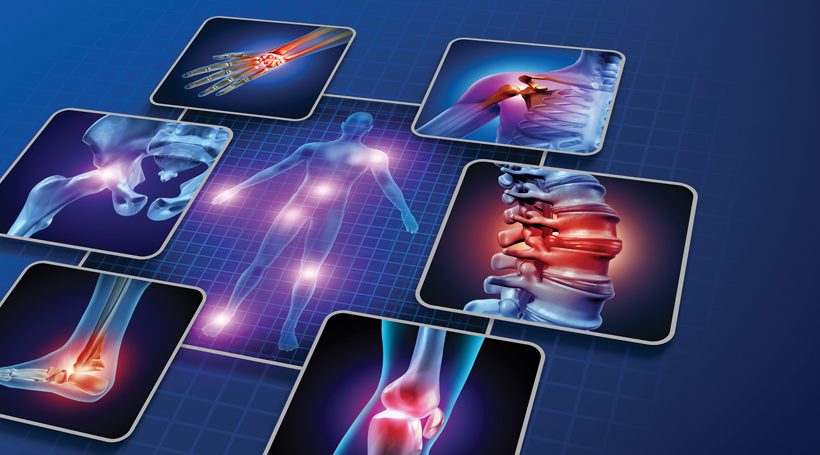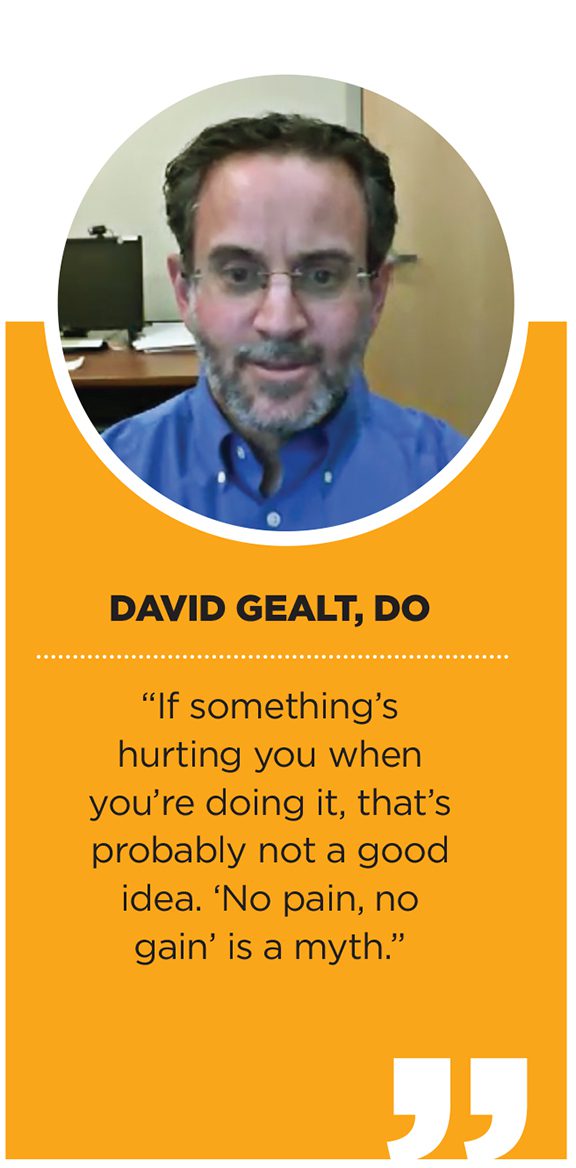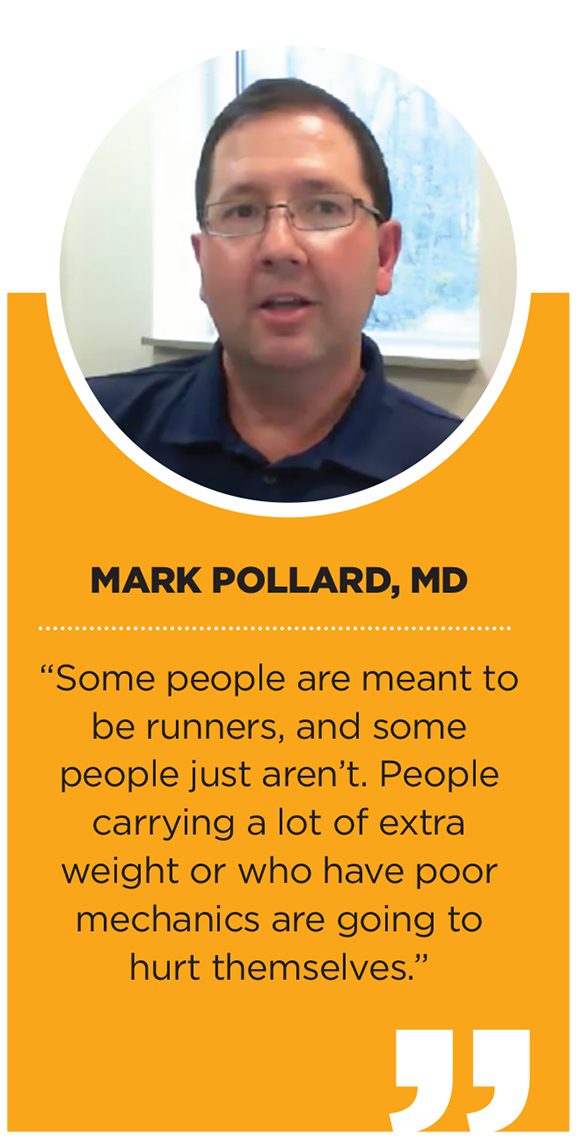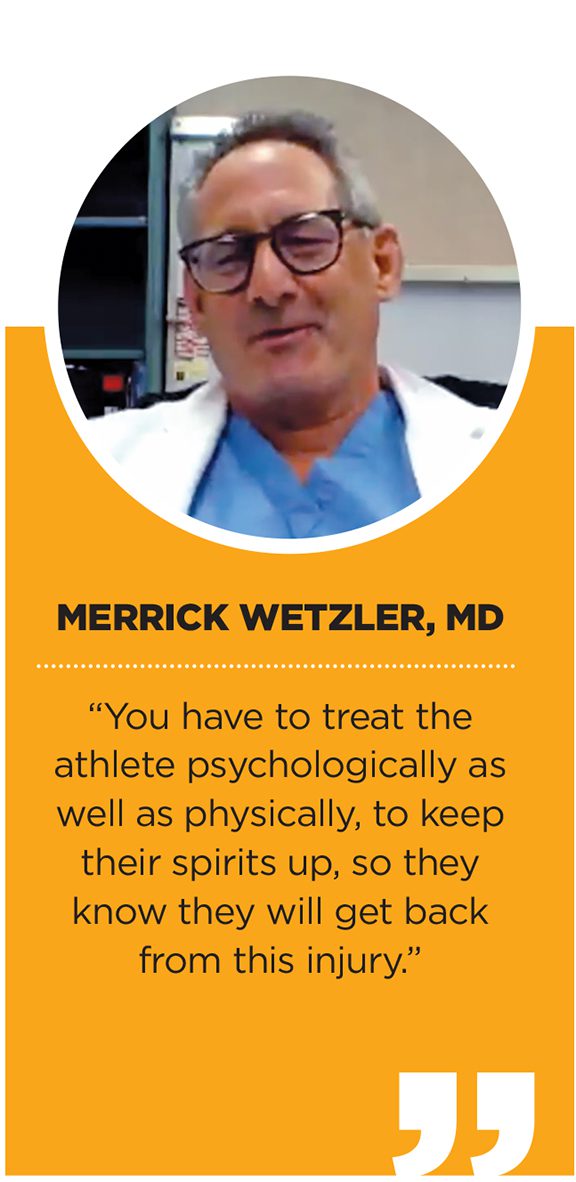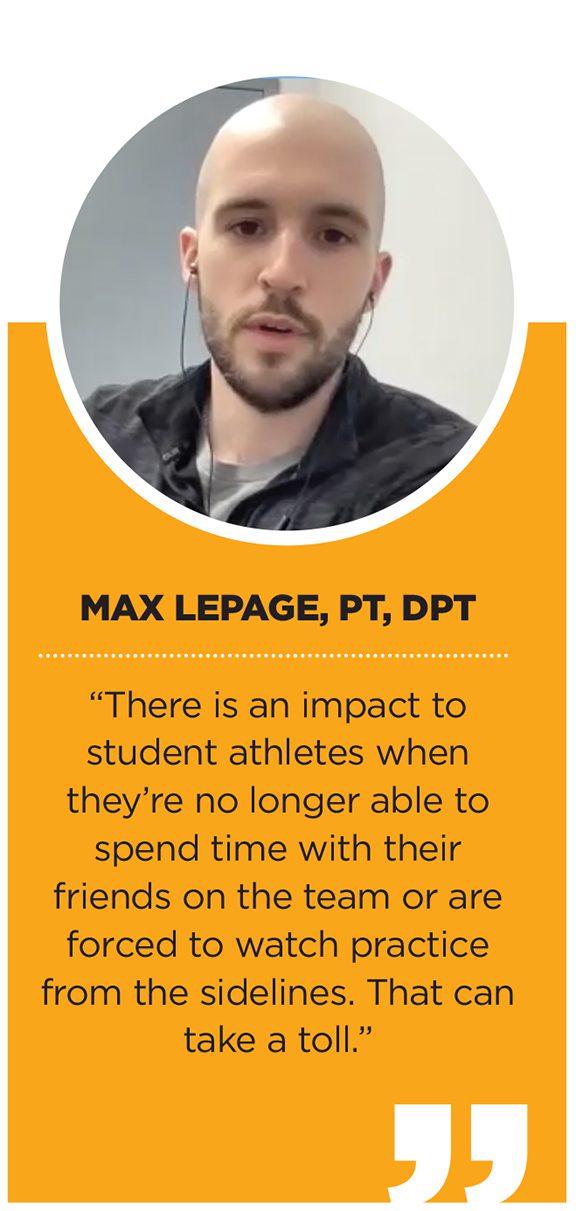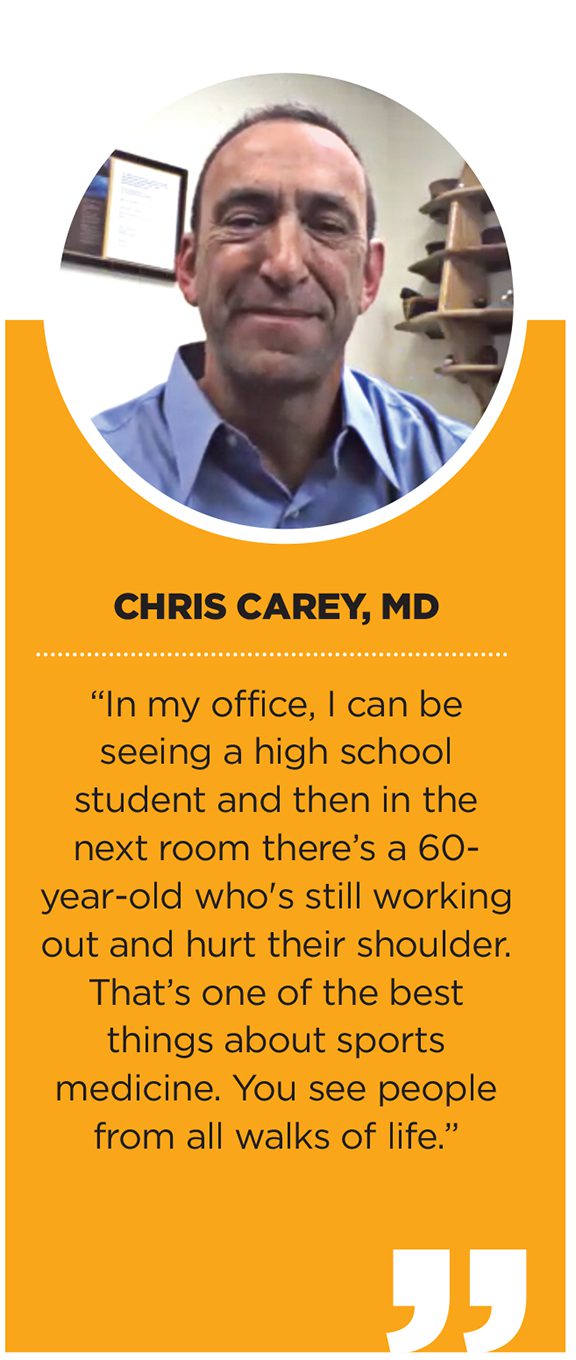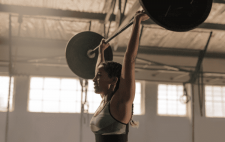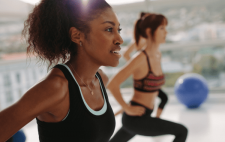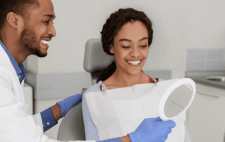Everyone knows you don’t have to be a professional athlete to have a sports injury. Sometimes a part of your body hurts and you just don’t know why. Other times, your body hurts and you do know why. Either way, you need to speak with a healthcare provider who can heal your body and get you moving again. The right expertise, the right care, can get you back to your normal life. We spoke with some sports medicine experts about the body and how it gets hurt – and healed.
Participants:
Marianne Aleardi, Moderator, Publisher, SJ Magazine
Merrick Wetzler, MD, Advocare South Jersey Orthopedic Associates
David Gealt, DO, Dir., Concussion Program Assistant Dir., Sports Medicine Cooper University Health Care
Mark Pollard, MD, Associate Program Director, Orthopaedics Residency Cooper University Health Care
Max Lepage, PT, DPT, The Training Room by Ivy Rehab Network
Chris Carey, MD, Advocare Orthopedic Reconstruction Specialists
On running…
Running is a great activity: It’s not expensive. You can do it by yourself or with friends. You don’t need a lot of equipment, so it’s cheap from that standpoint. Some adults who start running for the first time go out too quickly and do too much. You should increase your distance and intensity 10% at a time. Run, then walk, then run, then walk. Take baby steps, because you’re not going to run a 5K after 2 weeks. Build up your stamina, otherwise you’re going to come see us for injuries.
David Gealt
It can be tough to treat some runners because it gets to be almost an addiction, so they run through pain. But you’ve got to draw the line somewhere, because pain is the body’s way of letting you know something’s about to happen or something is wrong.
Mark Pollard
Lifelong runners are a different population to take care of because they don’t get their high from any other activity. It’s very difficult to get someone who’s 55 years old and has arthritis in the knee to switch to cross training or hitting the bike instead of running, because they just don’t get that same feeling. So it’s a matter of saying, “Here’s where you were, this is where you are now, and here’s where you can go. But you’ve got to build up to it, you can’t jump right back in.”
Chris Carey
Avoiding injury…
A lot of athletes end up seeing me because, after several months of minimal to no physical activity, they start running or their preseason begins. They introduce a radical change to their body, and they end up exceeding what their capacity is. Always make small changes to make sure your body has time to adapt.
Max Lepage
There’s an old saying: Don’t write checks your body can’t cash. Sometimes you think you’re invincible and you do stupid things. Then you pay the price. If you think before you do something new or different, you’ll prevent a lot of injuries.
Merrick Wetzler
Aging & pain…
As you get older, you will have soreness – something aches but you can still do things normally. As long as it doesn’t progress or stop you from doing something, that’s ok. You can work through it. But anything that makes you alter your gait or stop doing things, get that checked.
Merrick Wetzler
Age doesn’t necessarily cause pain, but the wear and tear that goes along with it does. People who are out of shape, they’re going to have a tough time. But on the other hand, people who overdo it constantly, they’re going to end up with overuse problems.
Mark Pollard
As you age, it takes longer to recover when you have soreness. If you hurt yourself in your 20s, that will stop pretty quickly. But if you’re older, it may take a little longer.
David Gealt
Neck & back pain…
A large percentage of our population will experience back pain at some point. To manage or limit the recurrence of back pain, I talk about wellness concepts: adequate exercise every week, a healthy diet, adequate sleep, a high step count throughout the day. These kinds of general health and wellness efforts will put you in a good position should you have an episode of back pain.
Max Lepage
If you have neck pain and you sit in a chair all day, make sure you’re sitting properly. Make sure you don’t have your head turned to one side because that’s where your computer is. Have your computer right in front of you. Take breaks and get up. Have a lumbar support on your chair. General back pain should get better. It shouldn’t be constant.
David Gealt
Tips to buy sneakers…
There are enough sneaker stores in the area where you can try on a bunch of different shoes. It’s really good to go to the stores, where they’ll literally look at your foot and say try these and try those. It’s a matter of finding something that works for you.
Chris Carey
Find a sneaker that fits right. I have a wide toe box, so I can’t wear certain sneakers. If you have a foot that has a bunion or you have flat feet, different sneakers will fit you best. And just like a car, you want to take them out for test drive.
Merrick Wetzler
Give yourself multiple shoe options. Cycling through multiple pairs of shoes in any given week can be a helpful way to change the stress that’s applied to your body. Make the shoes you wear on your post-dinner walk different from your work shoe, and those are different from your running shoe, which is different from your gym shoe. Variety tends to be one of the more helpful concepts when it comes to footwear.
Max Lepage
What parents should know about concussions…
The most important thing is to not have your child play through any symptoms. You want to make sure your child is evaluated and treated properly, so they don’t get into trouble. Every injury is different depending on where they got hit, how they got hit and what kind of symptoms they’re having.
David Gealt
The best approach is the team approach. And that team includes the athlete, parent, coach, athletic trainer and a concussion specialist. That’s vitally important. Open communication is also vitally important, so everyone’s on the same page.
Merrick Wetzler
On kids playing just one sport…
One of the reasons we see so many overuse injuries is because kids focus on one sport. When I grew up, you played a different sport every season. Today, by the time kids get to high school, sometimes even earlier, they’re focusing on one specific sport.
Chris Carey
Sports specialization, especially at a young age, is not good – not only physically but also mentally. Kids are getting burned out by age 12 or 13, and they don’t want to do the sport anymore. They may have loved it, but they got pushed into it. They do too much too soon, and then they get sick of it.
David Gealt
Emotional issues that come with students & sports injuries…
For a lot of young athletes, an injury is the first sign they’re not perfect and that everything’s not going to be exactly as they want. That’s a tough thing to realize. It’s not to say that hope is lost, because certainly we try to return them to where they were before. But it’s tough for young athletes to wrap their heads around that.
Mark Pollard
Sometimes they try to negotiate with you, but you just have to explain the why. So if we do a meniscal repair on a high school student, they can’t play for 4 to 5 months, but they feel good after about 6 weeks. They want to know why it’s going to take so long when they feel good. But there are so many things that are hidden. We have to go through the standard protocol.
Merrick Wetzler
There’s been a shift in terms of looking at psychological readiness to try to predict who’s at risk of re-injury. A lot of times you find the more psychologically informed measures are more valuable to us than some of the physical measures. Historically, I think we’ve under-emphasized how important psychological factors can be in the rehab process.
Max Lepage
It’s especially difficult for those kids going from high school to potentially play a sport in college. They may come in with an injury and they’re supposed to be in a showcase in a month. It’s a tough conversation trying to outline the expectations to the parent and the patient, especially when everything is STAT to them.
Chris Carey
How patients should decide on treatment…
I think the ideal question somebody could ask would be: What can I do to give myself the greatest chance for the best possible outcome? That shows they understand we’re a team working together, and they actually have to be responsible for helping with their recovery.
Mark Pollard
The old quote of “Nothing is a silly question” is true. We do this all day, every day, so we may assume or take for granted what the patient knows. Ask what you need to know, and we will try to explain it in a way that makes sense.
Chris Carey
I try to form something of an alliance with the patient, for us to be a team in addressing the injury they have, rather than them coming to me purely as the fixer of the problem. I want them to be part of the conversation, so it isn’t me or their orthopedic surgeon who’s setting the rules from an authoritative standpoint. I want them to feel like their perspective and their opinion is valuable.
Max Lepage
The rewards of their field…
I had a young lady who tore her ACL and had problems getting her motion back. This weekend, she played her first game in 9 months. The mom sent me a thank-you text with a picture of her with a huge smile on her face. That happens a lot with our patients. That’s why we do it – for moments like that.
Merrick Wetzler
When you get a picture from a parent or from the patient themselves, and they say ‘Look what I can do now’ – That’s the greatest.
Chris Carey
I had one patient a few years ago who had horrendous knee pain. He had a difficult time walking because of a meniscus tear, so we did surgery. Three months later, he sent pictures from the summit of Mt. Kilimanjaro. That was pretty cool.
Mark Pollard
How Covid affected their work…
Because of Covid, there were a lot of injuries that didn’t happen. There were a couple of seasons that just didn’t get played so a lot of athletes were spared injuries. It’s an interesting thing on a societal level. In the past, young people would get these injuries, and it changed their life’s trajectory. That didn’t happen.
Mark Pollard
We needed to adapt. We didn’t see athletes because there were 3 or 4 months they weren’t playing any sports. That was pretty strange, but overall the medical field adapted, figured out what was going on and what we needed to do.
David Gealt


